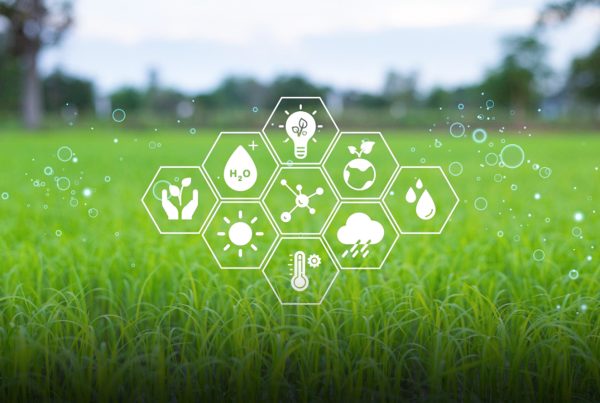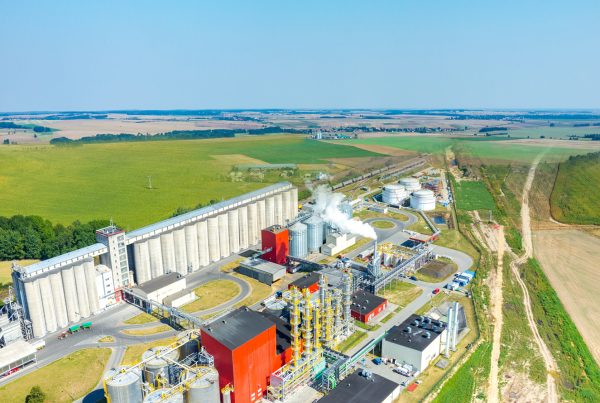The global energy landscape is evolving rapidly with growing concerns over climate change, depleting fossil fuel reserves, and rising pollution levels. The need for cleaner, renewable energy has never been more urgent. This urgency is driving industries and governments worldwide to seek sustainable alternatives to traditional fossil fuels.
Bioethanol has become a vital resource across various industries, including transportation, pharmaceuticals, beverages, and chemical manufacturing. From blending with fuels to reduce emissions to serving as a solvent and raw material in industrial processes, its versatility highlights its relevance as more than just a fuel alternative. Bioethanol’s ability to lower greenhouse gas emissions and enhance energy security aligns with global sustainability goals.
Understanding What is Bioethanol
Bioethanol is a form of biofuel produced through the fermentation of natural sugars. Unlike traditional fossil fuels, it is derived from renewable sources, making it an environmentally friendly option. The progress of India’s Ethanol Blended Petrol (EBP) Programme has been noteworthy, with the ethanol production capacity more than doubling in the last four years to reach 1,623 crore litres as of September 18, 2024.
Bioethanol is derived from various raw materials, such as:
- Sugarcane juice
- Corn
- Broken rice
- Agricultural and Industrial waste
These various feedstocks enable flexible production methods and adaptability in sourcing materials based on availability and regional needs.
Popular Applications of Bioethanol in Industries
Bioethanol’s primary application is fuel blending, where it is mixed with gasoline to reduce vehicular emissions and improve fuel efficiency. India is actively pushing for higher ethanol blending levels, targeting 20% by 2025, which is expected to drive significant demand for bioethanol.
This push is vital for reducing carbon emissions and helps enhance energy security by reducing dependency on imported fossil fuels. In the beverage industry, bioethanol plays a key role in the production of alcoholic drinks such as spirits, wines, and other fermented beverages. Its fermentation process efficiently converts sugars from feedstocks like sugarcane and corn into alcohol. This makes it essential for beverage manufacturers who rely on bioethanol for consistent quality and production.
Bioethanol is also widely used as a solvent in chemical industries due to its unique properties. It is an ideal choice for creating organic compounds through chemical processes. Furthermore, its application extends to products like paints, coatings, cleaning agents, and personal care items, further showcasing its versatility and importance across a broad range of industries.
Overcoming Challenges in Bioethanol Industry
The Jakson Group is transforming bioethanol adoption with our cutting-edge ethanol plant in Balaghat, Madhya Pradesh. Designed with a capacity of 150 KLPD and scalable up to 300 KLPD, this grain-based distillery uses sustainable feedstocks like broken rice and maize. By focusing on these reliable and eco-friendly raw materials, Jakson ensures consistent pricing and uninterrupted consumer supply.
Strategically located, the facility offers seamless access to key markets in Maharashtra and Chhattisgarh. This ensures timely delivery and robust supply chain management. Our commitment to efficiency and sustainability makes bioethanol adoption convenient for industries transitioning to cleaner energy.
FAQ:
How is bioethanol produced?
The production process involves fermenting sugars or starches from feedstocks, followed by distillation and purification to produce anhydrous ethanol suitable for fuel blending or industrial use.
What role does bioethanol play in the transportation fuel sector?
Bioethanol is blended with petrol (gasoline) to reduce carbon emissions, improve octane rating, and reduce fossil fuel dependency. For example, India aims for E20 (20 % ethanol blend) under its blending programme.
What are the benefits of using bioethanol in industry and transport?
Benefits include: reduced greenhouse-gas emissions, improved energy security (less import of crude oil), enabling circular economy (waste utilisation) and supporting rural/agricultural economies..
What challenges or limitations does the bioethanol industry face?
Challenges include: feedstock availability & competition (food vs fuel), cost of processing especially for advanced (2G) feedstocks, infrastructure and logistics for blending, ensuring consistent quality and regulatory support.









